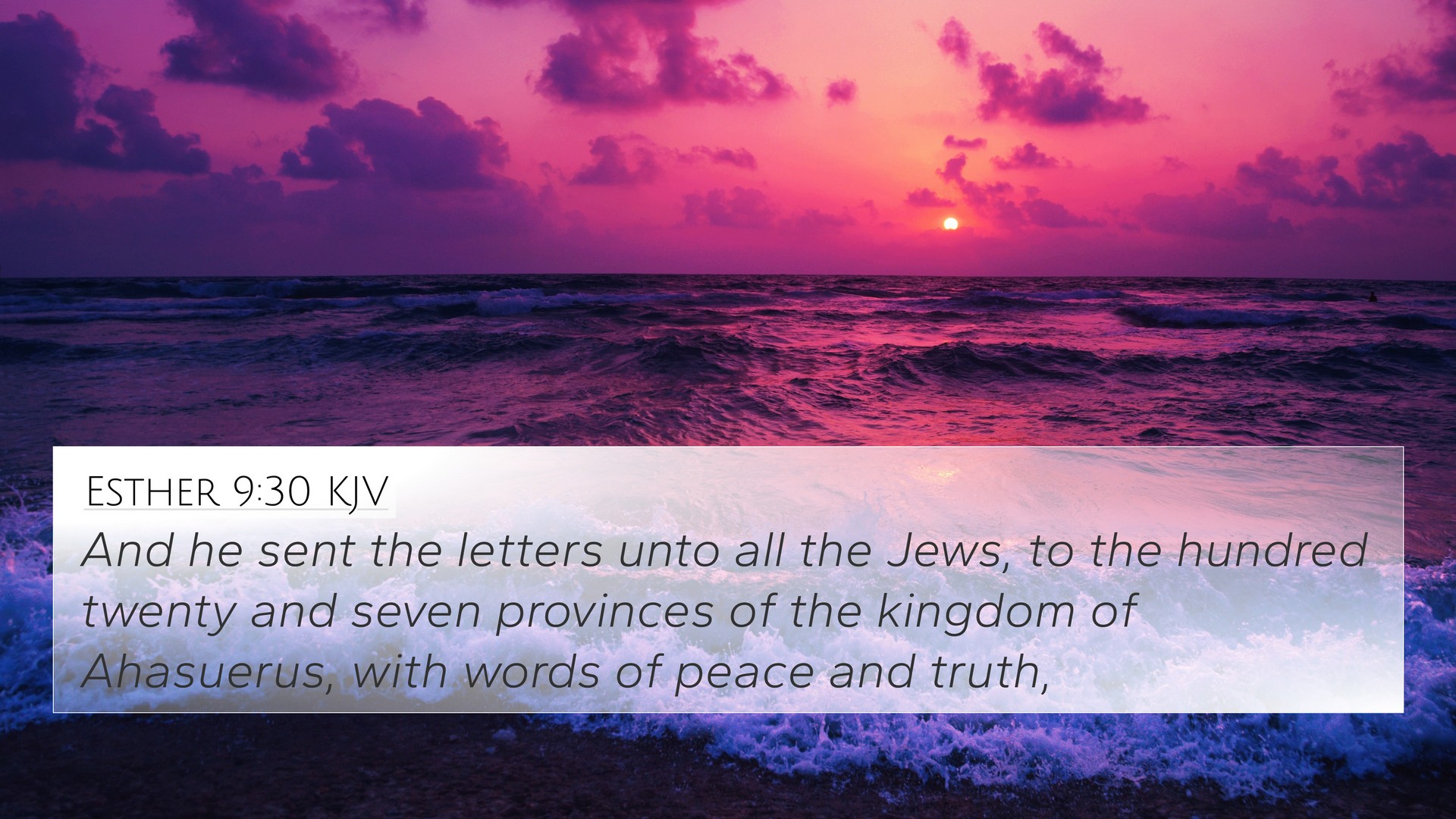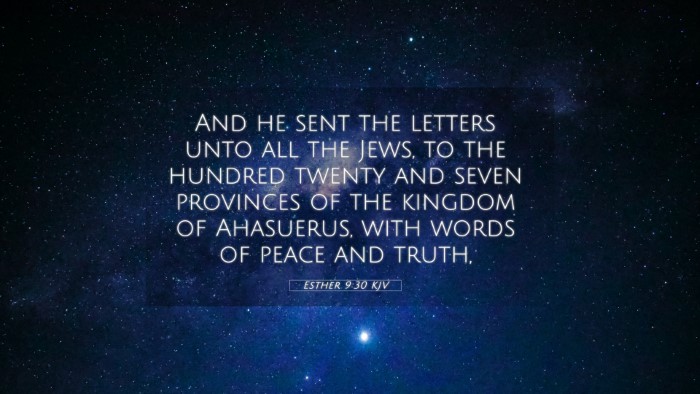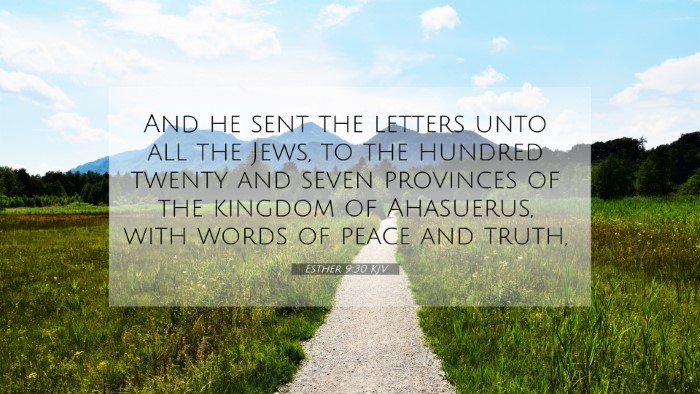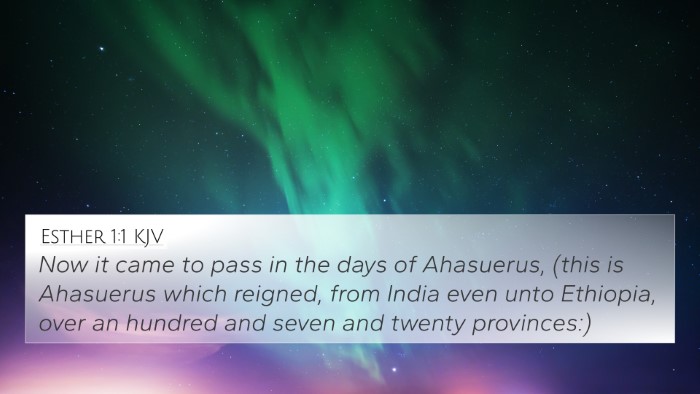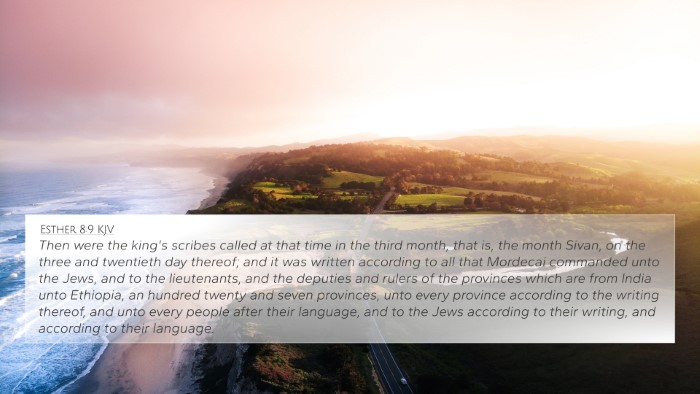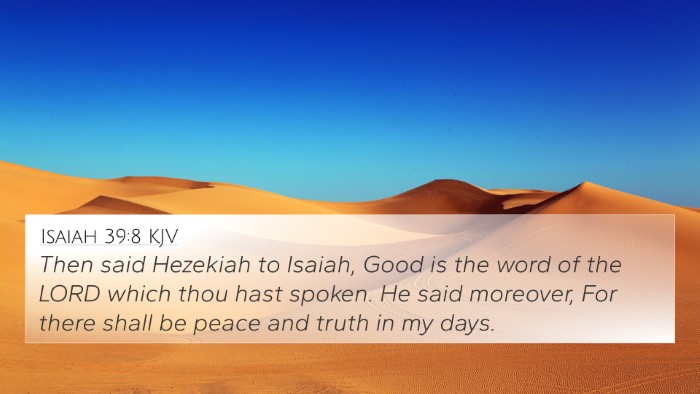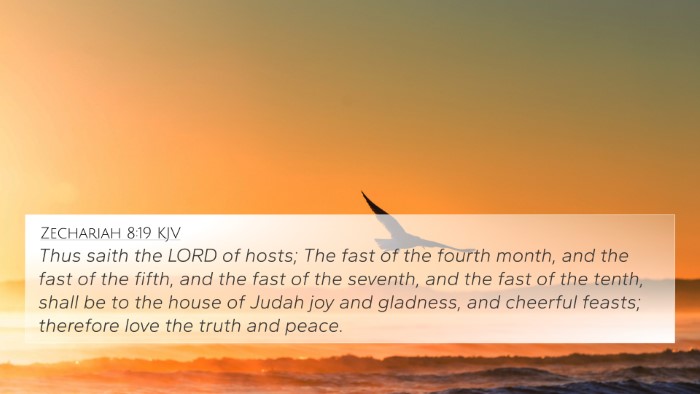Understanding Esther 9:30
Esther 9:30 reads: "And he sent letters unto all the Jews, to the provinces of the king Ahasuerus, with words of peace and truth." This verse concludes the Book of Esther, highlighting the significance of the festival of Purim and the importance of preserving this celebration among the Jewish people.
Meaning and Interpretation
The significance of Esther 9:30 lies in its context of restoration and remembrance. This verse encapsulates the message of hope and survival for the Jewish community after their deliverance from impending doom. It emphasizes the actions taken by Mordecai to ensure that future generations would not forget the miracles of God in their history.
Insights from Public Domain Commentaries
Drawing insights from Matthew Henry, Albert Barnes, and Adam Clarke, we can synthesize the following interpretations:
- Matthew Henry: He emphasizes the leadership of Mordecai and the necessity of remembrance in the lives of believers. Mordecai's letters served to remind the Jewish people of their identity and God's deliverance, reinforcing their connection to divine providence and their heritage.
- Albert Barnes: Barnes highlights the reconciliation theme in the verse, pointing out that these letters were meant to convey peace and truth. He notes that this reflects the desire for unity and the establishment of celebration among the Jewish people, further signaling their restoration in a hostile environment.
- Adam Clarke: Clarke focuses on the preservation of the festival of Purim as a way of celebrating their survival. He connects this celebration with the ongoing remembrance of God's past actions and the importance of maintaining cultural identity through shared traditions.
Cross-References and Thematic Connections
Esther 9:30 connects with several other scripture passages that emphasize themes of deliverance, remembrance, and the necessity of communal observance:
- Exodus 12:14: "And this day shall be unto you for a memorial..." - Emphasizes the importance of memorials in remembering God's deliverance.
- Psalms 78:4: "We will not hide them from their children..." - The call to pass down the works of God through generations.
- Deuteronomy 6:7: "And thou shalt teach them diligently unto thy children..." - Highlights the importance of teaching God's laws and deeds to future generations.
- Psalms 145:4: "One generation shall praise thy works to another..." - Similar theme of sharing God's goodness across generations.
- Isaiah 54:10: "For the mountains shall depart..." - God's covenant and enduring promise are reflected in this verse, linking to the idea of hope and security.
- Acts 15:21: "For Moses of old time hath in every city them that preach him..." - Reflects the need for ongoing remembrance in the Christian context.
- Hebrews 13:7: "Remember them which have the rule over you..." - Encourages the remembrance of leaders and their impact on faith communities.
Comparative Analysis of Esther 9:30
This verse not only serves as a conclusion to the Book of Esther but also acts as a bridge connecting the Old Testament's themes of deliverance with the New Testament's teachings on community and identity. The letters sent by Mordecai to the Jews can be seen as a precursor to the New Testament's emphasis on unity and action in faith communities.
The Role of Cross-Referencing in Biblical Studies
Esther 9:30 exemplifies the importance of cross-referencing within biblical texts. By examining connections, scholars and laypersons can gain deeper insights into biblical themes:
- Tools for Bible Cross-Referencing: Utilizing a Bible concordance or a cross-reference guide can help locate related verses like those mentioned above.
- This Verse's Relevance: It inspires questions such as "What verses are related to Esther 9:30?" prompting deeper exploration into meaningful connections.
- Join the Dialogue: Engaging in an inter-Biblical dialogue helps believers understand how Old and New Testament scriptures inform each other.
Conclusion
Esther 9:30 is rich in significance, reflecting themes of remembrance, truth, and peace within the Jewish tradition. By understanding this verse through the eyes of notable commentaries and exploring its connections to other scriptures, one gains a broader understanding not only of Esther's narrative but also of the overarching themes of God's providence throughout the Bible. Developing a practice of cross-referencing biblical texts will enrich personal study and foster a deeper engagement with the scripture.
